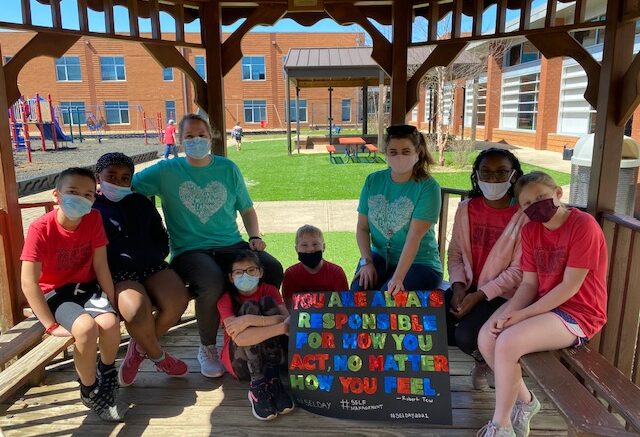Putnam County, Tenn. – Schools in the Putnam County school district celebrated National Social Emotional Learning (SEL) Day and why it is important to have SEL programs in schools.
“Social Emotional Learning research shows us that social and emotional competencies can be taught to our students as well as modeled and practiced to set them up for positive student outcomes that are not only important at school, but in life,” said Shelia Barker, Social Emotional Wellness Coordinator for the Putnam County School System.
According to the Collaborative for Academic, Social, and Emotional Learning (CASEL), SEL programs show improvement in students’ social and emotional skills, attitudes, relationships, academic performance, and perceptions of classroom and school environment.
“It benefits the students in the short-term, but also in the long-term,” said Barker. “In Putnam County schools, we are seeing anxiety and other behavior problems in students more than ever. Research shows us that SEL programs help in the decline of students’ anxiety, behavior problems, and substance abuse. PCSS counselors analyze research data from the American School Counselor Association model to see how they can reduce discipline, increase attendance and increase academic performance. We are thankful to be able to have counselors and school social workers who are modeling and teaching social-emotional skills to our students. To help students talk, vent, and understand the emotions they are feeling.”
Kellie Phillips, school counselor at Algood Elementary School, shares why she feels SEL is important in schools, “SEL is an opportunity to teach kids life skills that they will use the rest of their life. I am here to help them understand why they go through different situations and how they can get through that situation, whether that is dealing with hard things at home or at school; really just helping them process their emotions of anger, frustration, anxiety or worry. We have so many students dealing with these things that you would never believe. I am thrilled to be a resource to students. Letting them know they have someone to talk to or come to if they need help is huge.”
One might ask, what are Putnam County Schools doing specifically to engage in SEL?
“There are five broad interrelated areas that we focus on in SEL: self-awareness, self-management, social awareness, relationship skills, and responsible decision-making,” said Barker. “From preschool to high school, growing and establishing these learning standards and competencies lays a foundation for students to set them up for success not only academically, but also allows them to engage in school and civic environments, understand the importance of health and wellness, which will lead to a fulfilling future.”
Phillips adds, “Our teachers are on board with SEL and they have found ways to incorporate SEL in their classrooms. It could be circle time where they are asking students questions, giving them activities to do, ways like that.”
Whether schools are showcasing inspiring bulletin boards around their building or sharing uplifting morning announcements, they are constantly finding unique ways to engage students in SEL. However, the teaching doesn’t stop at school. Putnam County School’s counselors are communicating with the families through their school’s newsletter to educate and give them at-home activities or questions to do with their children.
“Encouraging families to participate in their child’s social emotional learning not only benefits the child but the parent as well,” said Barker. “In their separate domains, educators and parents both can focus on a child’s strengths, increase ability to manage emotions and to empathize. This collaboration is key to fulfillment and success in school and life.”
For Putnam County Schools, social emotional learning is not a new concept, but they continue to accelerate their efforts to make it commonplace.
“Our schools do a great job in looking at the whole child. The decision makers have always placed an emphasis on research-based curriculum, but also implementing as many resources as possible to address the social emotional needs of the students,” said Barker. “We will continue to assess the strengths and areas of growth in our counseling programs and other mental health resources that we have available at PCSS. The hope is also to incorporate more social emotional learning lessons into academics. We are going to provide more opportunities for teachers and staff to be trained regarding trauma, mental health signs and symptoms, and ways to help reduce the amount of discipline issues in the classroom. This school year has stretched educators beyond what they could have ever imagined. However, our school educators have taken many opportunities to grow in their own social emotional competency as well as providing opportunities for young people to become more empathetic, self-actualized, and resilient.”

